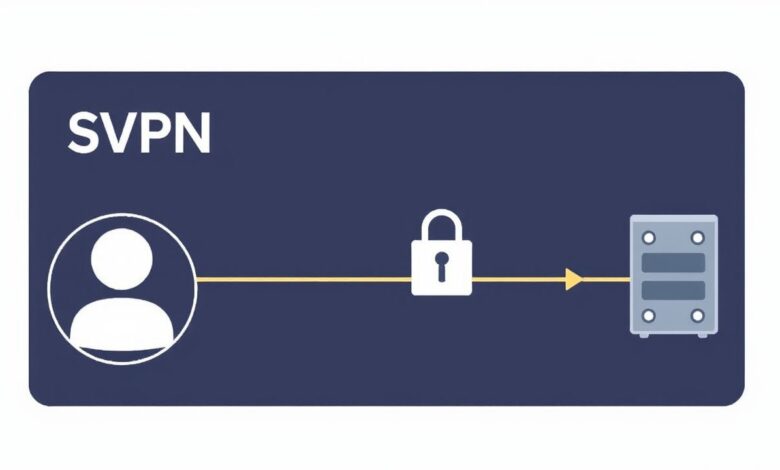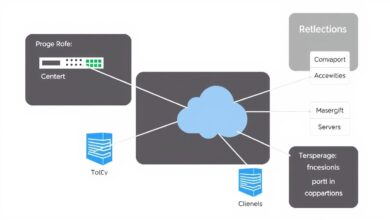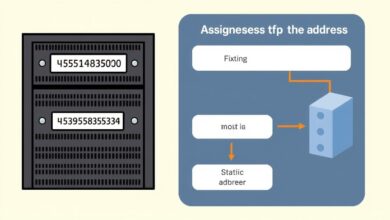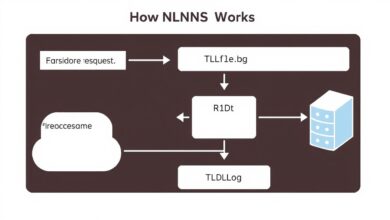Unlocking Secure Server Access with VPNs: Your 2024 Guide

In an era where digital threats loom large and remote work is commonplace, ensuring secure server access is paramount for businesses and individuals alike. One of the most effective tools in the cybersecurity arsenal for this purpose is the Virtual Private Network (VPN). Understanding how VPNs function and how they specifically bolster server security is crucial. This guide delves into the essentials of VPNs and how they provide robust, secure server access with VPN technology.
The fundamental concept of a VPN revolves around creating a private, encrypted pathway over a public network, typically the internet. Think of it as a secure tunnel shielding your data from prying eyes. When you connect to a server without a VPN, your traffic usually goes through your Internet Service Provider (ISP) directly, potentially exposing it on less secure networks, especially public Wi-Fi. A VPN fundamentally changes this process.
What Exactly is a VPN and How Does it Work?
A Virtual Private Network (VPN) establishes a secure, encrypted connection between your device (like a computer or smartphone) and a remote VPN server, operated by a VPN provider. All your internet traffic is routed through this server. Here’s a breakdown:
- Encryption Tunnel: When you activate a VPN, it creates an encrypted “tunnel.” Data travelling through this tunnel is scrambled, making it unreadable to anyone who might intercept it, including hackers or even your ISP.
- IP Address Masking: The VPN server assigns your device a new IP address associated with the server’s location. This masks your actual IP address, enhancing anonymity and making it harder to trace your online activities back to you or your physical location.
- Secure Data Transmission: As you interact with online services, websites, or crucially, remote servers, the VPN encrypts the data before it leaves your device and decrypts it only when it reaches its intended destination (or the VPN server acts as a relay).
This mechanism provides essential privacy and security, particularly vital when handling sensitive information or requiring secure server access with VPN connections.
[Hint: Insert image/video of a diagram illustrating how a VPN tunnel works]The Core Role of VPNs in Securing Server Access
Connecting to a server, whether it’s a company’s internal file server, a web server you manage, or a cloud-based database, often involves transmitting sensitive data. VPNs offer multiple layers of protection specifically for this task.
Robust Data Encryption
This is perhaps the most significant benefit. When accessing a server through a VPN, the entire communication channel is encrypted. Common protocols like OpenVPN or IKEv2/IPsec use strong encryption algorithms (like AES-256) to safeguard data packets. This means even if someone intercepts the traffic between your device and the server (e.g., via a compromised Wi-Fi network), they won’t be able to decipher the actual data being exchanged. This protection is critical for credentials, confidential files, and proprietary information.
Controlled Network Access
Businesses extensively use VPNs to grant employees secure remote access to corporate servers and internal networks. Instead of exposing internal resources directly to the internet, companies can require users to connect via a VPN first. The VPN acts as a secure gateway, authenticating users and encrypting their connection before allowing them onto the private network. This ensures only authorized personnel can access sensitive company servers, drastically reducing the attack surface.
Mitigating Network-Based Threats
Using a VPN helps protect against various network threats when accessing servers:
- Man-in-the-Middle (MitM) Attacks: On public Wi-Fi, attackers can position themselves between your device and the server to intercept or alter communication. VPN encryption makes this data useless to them.
- IP Address Exposure: Directly connecting to a server reveals your IP address. A VPN masks your real IP, replacing it with the VPN server’s IP, adding a layer of anonymity and preventing targeted attacks based on your IP.
- ISP Snooping: While less common for direct server attacks, VPNs prevent your ISP from logging the specific servers you connect to (though they know you’re using a VPN).
Achieving truly secure server access with VPN relies heavily on these protective features.
Choosing and Implementing VPNs for Server Security
Not all VPNs are created equal, especially when server access security is the primary goal.
Key Considerations:
- Security Protocols and Encryption Strength: Prioritize VPNs offering modern, secure protocols like OpenVPN and WireGuard®, alongside strong encryption standards (AES-256). Avoid outdated protocols like PPTP. You can learn more about common protocols from reputable sources like Kaspersky’s overview of VPN protocols.
- Logging Policy: Opt for VPN providers with a strict, independently audited no-logs policy. This ensures they don’t store records of your online activity or connection details.
- Server Infrastructure: Consider the location and number of servers. For corporate use, setting up a dedicated business VPN or self-hosting a VPN server might be necessary.
- Kill Switch Feature: A kill switch automatically disconnects your internet access if the VPN connection drops unexpectedly, preventing accidental data leaks or exposure of your real IP while accessing the server.
- Performance: Encryption adds overhead, potentially slowing speeds. Choose a VPN known for good performance to avoid hindering productivity when accessing servers.
Implementation Steps:
For individuals or small teams, using a commercial VPN client is straightforward: install the app, log in, and connect before accessing the server. For organizations, implementation involves setting up a VPN server (either self-hosted or through a VPN-as-a-Service provider) and configuring client devices to connect to it. This often requires IT expertise to ensure proper configuration and security hardening.
Integrating VPNs is a critical step towards better security. For more tips on server protection, consider reading about general server security best practices.
Conclusion: VPNs as Essential Gatekeepers
In conclusion, Virtual Private Networks are indispensable tools for ensuring secure server access. By encrypting data, masking IP addresses, and controlling network entry points, VPNs create a fortified environment for interacting with sensitive servers, whether for remote work, personal projects, or managing infrastructure. Implementing a reliable VPN strategy is no longer just an option but a necessity for protecting valuable data and maintaining operational integrity in today’s interconnected world. Understanding how to leverage secure server access with VPN technology empowers users and organizations to navigate the digital landscape with greater confidence and security.




